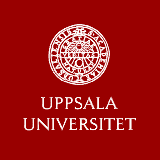Kalendarium
Högre seminarium19 maj 2016 kl. 15:15 – 17:00
Lokal: Eng 6-0031
Thorsten Carstensen & Mattias Pirholt (Indiana Univ & Purdue Univ; Uppsala University & Södertörn College)
German Modernist Literature and the Everyday, 1890-1940
Presentation of plans for an anthology Language: English Contact: torsten.pettersson@littvet.uu.se ABSTRACT The desire of literature to replicate the things, places, and events of ordinary life is most commonly associated with nineteenth-century Realism. Erich Auerbach, for instance, analyzing seemingly banal dinner scenes in the works of Balzac, Flaubert, and Stendhal, maintains that it is in the representation of everyday practices that the Realist novel comments on and critiques the processes of modernization. More recently, similar arguments have been made about the major triad of German Realist novelists, Theodor Storm, Wilhelm Raabe, and Theodor Fontane. By contrast, the literature of German Modernism (1890-1940) is often characterized by its inward turn and its preoccupation with form. Indeed, it can be argued that the specifically modernist answer to the challenges of modernization around 1900 lies in literatureâs escapist move. Responding to the gradual fragmentation of society and the loss of universally acknowledged values, writers like Thomas and Heinrich Mann, Robert Musil, Hermann Broch, Lou Andreas-Salomé, Hugo von Hofmannsthal, and Joseph Roth are concerned with chronicling the disintegration of the self. However, their negotiation of theoretical terrain notwithstanding, literary texts of the âKlassische Moderneâ are also always enmeshed in day-to-day routines and ordinary events. Thorsten Carstensen and Mattias Pirholtâs anthology project âGerman Modernist Literature and the Everyday, 1890-1940â seeks to address the intersection of modernity and the mundane by investigating renditions of everyday life in German literature of the early twentieth century. Topics include work, leisure, and the home, as well as the role of transportation, communication, sexuality, and religion. The seminar will consist of two presentations, which will constitute the point of departure for a further discussion about modernism, modernity, and everyday life. In his talk on Theodor Fontaneâs Berlin novels, Carstensen will focus on the intersection of mundane conversation, cultural codes, and fragile social structures. Pirholt will examine the home as a multi-medial scene in novels by Thomas Mann, Robert Musil, and Joseph Roth. Thus, the editors hope to broaden our understanding of how literature incorporates the early twentieth-century processes of modernization, the effects of which are most palpable in everyday life.
